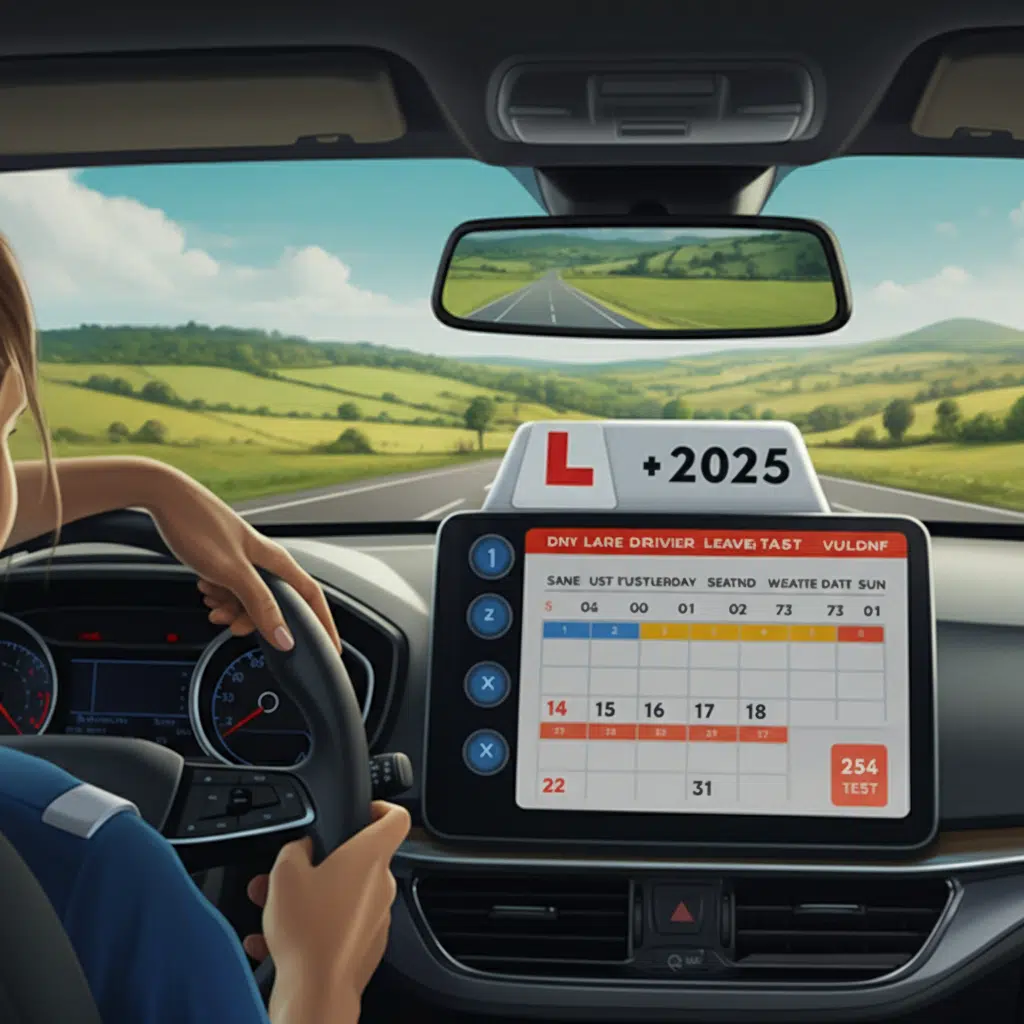Five minutes on the DVSA booking site is all it takes to realise the post-pandemic backlog is still very real. Prime slots vanish in seconds, friends compare horror stories of six-month waits and you start calculating how many more bus fares you can stomach before finally holding a pink licence. The good news? Learners who plan smart—and use the right bits of tech—are still snatching appointments weeks or even months sooner than the headline queue suggests. Here’s a step-by-step playbook for beating the clock in 2025, built around three tools and tactics that make the difference.
1. Lock Down a “placeholder” date first
Counter-intuitive as it sounds, the fastest way to an early test is to book any slot you can get—yes, even that bleak November morning. A confirmed booking unlocks the option to swap later, and it gives you a fixed goal for lesson planning. More importantly, many automated services won’t watch for alternatives unless they have a reference number to modify.
2. Expand your test-centre horizon
Most learners start with their closest centre, see nothing for months and give up. Cast your net wider—30 to 40 miles is perfectly reasonable if it chops ten weeks off the waiting list. Rural centres often have lighter demand, and a quieter route can settle nerves during the exam itself. Just make sure you squeeze in a practice drive to learn the local quirks before the big day.
3. Automate the hunt for cancellations
Manual refreshing used to work, but it eats time and sanity. Today’s faster route is a driving test availability checker: a cloud-based service that pings the DVSA portal every few seconds and pounces when a date opens that matches your settings. Because the tool works round the clock, it spots the 2 a.m. cancellations that sleepy learners miss.
4. Decide whether to pay for premium speed
You’ll see plenty of adverts promising a DVLA fast track driving test. In reality the government doesn’t sell priority slots—what you’re buying is a company’s ability to secure cancellations faster than you could, sometimes bundled with an intensive lesson package. If your job offer or university start date hinges on passing soon, the premium can be money well spent. If not, free or low-cost checkers usually get the job done given a bit more patience.
5. Keep your skills warm between now and test day
Snagging an early appointment only matters if you’re ready. Aim for at least two hours of practice each week—more if your new slot lands within a fortnight. Mix in mock tests on actual routes, focus on manoeuvres you rarely use in daily driving and rehearse the “show-me, tell-me” questions until they feel casual.
6. Use tech that can switch dates automatically
Refresh fatigue is real, and staring at a screen when you’re supposed to be revising for A-levels isn’t ideal. A good driving test cancellations app can log in on your behalf and swap your existing booking for an earlier one the instant it appears, then send a push notification so you can add the date to your calendar before someone else grabs it. Look for apps that let you set a “no earlier than” filter—nobody wants a surprise 8 a.m. test the day after a long-haul flight.
7. Be flexible—and fast—when opportunity knocks
Cancellations come and go in under a minute. Whether you rely on an app, a checker or your own vigilant eyes, be ready to commit at once. Confirm the swap, screenshot the new booking and forward the details to your instructor so you can adjust lesson plans. Then cancel old dates immediately; hoarding slots clogs the system and risks an account suspension.
8. Have a backup plan for setbacks
Strikes, examiner sickness, freak snowstorms—unfortunately they happen. Keep a small savings buffer or a credit-card limit free in case you need a last-minute extra lesson or hotel near an unfamiliar test centre. And remember your theory certificate lasts two years; if it’s within six months of expiring, renew your revision schedule so you’re ready to retake at short notice.
The Bottom Line
There’s no magic button that teleports you to the front of the DVSA queue, but there is a clear recipe for jumping it: secure any date, widen your test-centre net, automate the search, and stay lesson-ready so you can pounce when the notification arrives. For some learners—especially those on a tight career deadline—paying a reputable firm to chase cancellations makes sense. For everyone else, a well-configured checker or cancellations app usually delivers the goods with nothing more than patience and a few well-timed taps. Either way, remember the goal isn’t just an earlier appointment; it’s stepping out of the test centre with a pass certificate in hand and the open road ahead.













